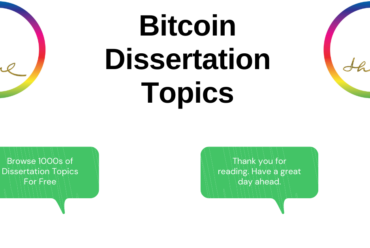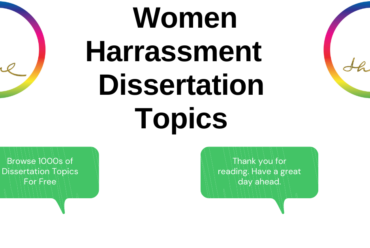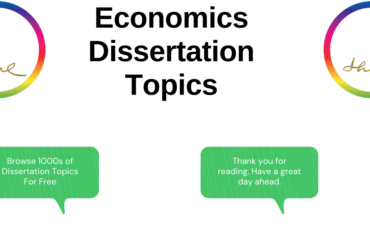History Dissertation Topics
The dissertation is the most significant academic assignment you will complete during your time at university. It’s an opportunity to delve deeper into a subject of your choosing and to demonstrate your ability to conduct independent research in a university setting. Dissertation research can aid in the development of a more nuanced understanding of previous scholarship, the analysis of previous research through a new analytical lens. In any case, as the objective and scope of your dissertation evolve, it is critical that you choose a subject that piques your interest and motivates you to work on it. Concentrating on a single subject can be difficult when considering the breadth of historical periods covered in your degree programme. This article includes numerous topic suggestions from a variety of historical eras to assist you in selecting a dissertation topic. There are suggestions for the Crimean War, Napoleon, Italian and German unification, the First World War, the Great Depression, Mussolini, Nazi Germany, Stalin’s Russia, and the Second World War, to name a few.
Editingarsenal has compiled a list of some of the most popular and common dissertation topics from a variety of academic disciplines, so you can pick and choose what to write about. If you need dissertation editing assistance , don’t hesitate to contact one of our qualified and experienced editors and proofreaders.
Napoleon Dissertation Topics
- How and why did Napoleon III ascend to power?
- What position did Napoleon III take on the Vienna system, and how did he implement it?
- What were Napoleon III’s primary economic and social policies, and how did they contribute to his survival?
- Was Napoleon III motivated by a desire for liberalisation or a lust for power?
- What were Napoleon III’s primary challenges during his ascension to power, and how did he overcome them?
- What significance did Napoleon III’s Crimean War involvement have?
- What sets Napoleon III’s ‘authoritarian’ government apart from that of previous French Emperors?
- What were Napoleon III’s foreign policy guiding principles?
- Which factor was the primary cause of Napoleon III’s demise? How did it acquire such stature?
- How, in your opinion, has Napoleon III’s legacy influenced European relations since his assassination?
- Is it appropriate to refer to Napoleon III as an arts patron?
- What factors influenced Napoleon III’s decision to support Italian unification?
- Given his numerous social and political achievements, why do you believe that many historians have a negative view of Napoleon III’s legacy?
Crimean Dissertation Topics
- Are you aware of the primary cause of the Crimean War?
- What qualifies as a’modern’ conflict in the Crimean War?
- What was the most significant event of the Crimean War?
- French policy during the Crimean War should be studied and explained to your students.
- What effect did the Crimean War have on Europe?
- How significant was religion during the Crimean War?
- What was the single most significant event that brought the Crimean conflict to an end?
- Why was there such a high number of failed peace attempts following the Crimean War?
- What precipitated the end of the Crimean War at that time?
- What makes women’s participation in the Crimean War so noteworthy?
- What were the Ottomans’ objectives in the Crimean War?
- What factors contributed to the decision of the French and British empires to oppose Russia and support the Ottomans during the Crimean War?
- Was the Crimean War unavoidable in light of the strategic objectives of the principal actors?
Italy Unification Topics
- What were the primary factors that aided in the unification of Italy?
- What were Italy’s newly formed government’s most pressing issues, and how were they resolved?
- Evaluate Cavour’s contribution to Italian unification – was he instrumental in the country’s success?
- Which factor – economics or foreign policy – played a greater role in unification?
- What effect did Italy’s unification have on the operation of the Vienna system?
- How did Italy’s approach to foreign policy compare to that of other countries at the time?
- Why had Italy remained so long in a state of ‘disunity’?
- Determine whether Italian unification resulted in an increase in the populace’s standard of living.
- How successful was Italy’s unification? What, if any, purpose did unification serve?
- Assess Garibaldi’s contribution to Italian unification.
- How did Italy’s unification affect the balance of power in Europe?
- How would you rate Guiseppe Mazzini’s assertion that he was the primary catalyst for Italian unification?
- Evaluating the various social factors that influenced Italy’s unification. Is it possible to single out one as the most significant?
Germany’s Unification Topics
- Unification of Germany: a foregone conclusion? Consider the events that led to Germany’s unification to see if it was inevitable.
- During this time period, what ways did the unification of Germany represent a victory for German liberals.
- Why did Germany achieve unification as a result of the Schleswig Holstein crisis, and how significant was it?
- How critical was Bismarck to Germany’s unification?
- Was the unification of Germany a success or a failure?
- After unification, what was Germany’s most significant accomplishment?
- What problems was German unification supposed to solve but didn’t?
- Did German unification help to heal social and political rifts?
- At the time, why did Germany’s unification matter so much to European society?
- Take a look at the reasons why the unification of Germany was so significant.
- Identify and evaluate any evidence to support the claim that German unification was primarily a Prussian nationalist exercise.
- What was Wilhelm I’s role in Germany’s unification?
- When Germany unified, what were the implications for foreign policy for the other major European powers that were already in place.
- Germany’s unification: a foregone conclusion? Consider the events that led to Germany’s unification to determine whether it was a foregone conclusion.
- In what ways did the unification of Germany represent a victory for German liberals during this time period?
- Why and how significant was Germany’s unification as a result of the Schleswig Holstein crisis?
- Bismarck’s role in Germany’s unification was critical.
- Was Germany’s unification a success or a failure?
- What was Germany’s most significant achievement following unification?
- What issues was German unification supposed to address but failed to do so?
- Did German unification contribute to the healing of social and political schisms?
- Why did Germany’s unification matter so much to European society at the time?
- Consider the reasons for the significance of Germany’s unification.
- Identify and evaluate evidence that German unification was primarily a Prussian nationalist exercise.
- What role did Wilhelm I play in the unification of Germany?
- When Germany unified, what were the ramifications for the other major European powers that were already in place in terms of foreign policy?
First World War Dissertation Topics
- Determine which of the following events precipitated the outbreak of World War One, in order of importance: Moroccan Crisis of 1905-1906; British Agreement with Russia of 1907; Bosnian Crisis of 2008; Agadir Crisis of 1911; Balkan Wars of 1912 and 1913; and assassination of Austrian Archduke Franz Ferdinand.
- Was there a single party responsible for the First World War? If that is the case, who and why?
- To what extent can we attribute the outbreak of World War I to the tensions and rivalry that existed in the early twentieth century among European nations?
- What motivated Gavrilo Princip to assassinate Archduke Franz Ferdinand? Was this choice made in error?
- Why were Europe’s great powers able to contain Balkan crises in 1912 and 1913 but unable to avert the outbreak of European war in 1914?
- What precipitated this change in German attitudes toward Austria? What was the link between this attitude shift and the outbreak of the war?
- What was happening in the rest of the world during this time period that precipitated the outbreak of war in Europe?
- Finally, we’ve tracked down our adversary. Germany now understands who its adversary is, as if struck by a bolt of lightning in the dark. When the time comes, there will be blood and treasure sacrifices. M Isn’t The Kaiser Cresset the quintessential classic? Germany’s entry into World War II is implausible on the basis of government paranoia that influenced the general public’s push for conflict.
- The government of this country cannot declare war unless the people of this country support it. (Note to the Cabinet by Prime Minister Lord Salisbury in May 1901) – How and why did the British Empire become involved in World War I?
- Was there any progress made during World War One? Were you successful in resolving the issue?
- Eventually, the First World War erupted. If this is the case, how is this possible?
- Analyze the CIA’s influence on the outcome of the war through the lens of a single country.
- Analyze the strategic ramifications of the Marne (1914). Is it accurate to refer to it as the war’s pivotal battle? If this is the case, what is the rationale?
Second World War Dissertation Topics
- What precipitated the outbreak of World War II? What was the source of the issue?
- Was there ever a time during the conflict between Stalin’s Russia and Finland when Finland lost a war but won peace?
- What was the pivotal event of the war – and how did it end? What is it about the event you’ve chosen that is so meaningful to you personally?
- How did the United Kingdom fare following the fall of France, as the primary European resistance to Nazi Germany’s total conquest of Europe? What was the deciding factor?
- When did the Axis powers surrender to the Nazis and the war was declared lost? Why?
- What were the consequences of World War II for European society?
- What accounts for Germany’s near-total dominance prior to 1941? What precipitated their precipitous decline in power?
- How significant a role did the US play in the conflict? What changed as a result of their participation in Europe’s conflict?
- Is it possible that World War II could have been ended in a peaceful manner?
- How close was the United Kingdom to requesting a meeting with Hitler following the fall of France?
- How much did Germany’s occupation of the Channel Islands influence its post-World War II policy toward the rest of Europe?
- Was Romania a willing or coerced ally of Nazi Germany during World War II?
- Why did the Germans fail to make a breakthrough during the Battle of Britain during World War II?
Mussolini’s Italy Dissertation Topics
- Which of Italy’s previous governments’ failings contributed to the country’s susceptibility to fascism?
- Why did fascism appear to the Italian people as such an enticing alternative – what drew segments of Italian society to it?
- What is ‘totalitarianism,’ and to what extent was Mussolini’s Italian regime ‘totalitarian’?
- v Critically assess Mussolini’s government – could it be considered successful in terms of populist benefits?
- What transpired in 1922 to ‘liberate’ the Italian Republic from Mussolini’s rule, and why was this such a significant event?
- How and why did public opinion shift in the aftermath of Mussolini’s rise to power?
- Consider one particular event and why it could be considered the defining moment in Mussolini’s demise – why is this so significant?
- Consider whether Mussolini exercised the same level of control in Italy as Hitler did in Germany, and justify your conclusion using social, political, and economic factors.
- Was Mussolini’s government a continuation or a departure from previous Italian governments??
- Is it possible that Mussolini’s administration overstretched Italy’s resources during WWII?
- Consider Antonio Gramsci’s statement to the Italian Parliament on 16 May 1925 that ‘the fascist revolution (in Italy) was merely the replacement of one administrative personnel with another.’
- Were Hitler and Mussolini’s suspected allies throughout the 1930’s?
- How did the fascist regime in Italy work with or against the Catholic Church?
- Was the Fascist government in Italy anti-Semitic?
- Justify Mussolini’s suppression of freemasonry, its forms, and justifications.
Stalin’s Russia Dissertation Topics
- What factors aided Stalin’s ascension to power in the aftermath of Lenin’s death?
- What were the most pressing issues confronting Russian/Soviet society in the aftermath of Lenin’s assassination, and how, if at all, did Stalin resolve them?
- Was Stalin’s purge-era repressive approach to Soviet Union governance necessary?
- What were Stalin’s greatest achievements and failures, and why did they matter so much?
- How did Russia go from being one of the West’s most stalwart allies during World War II to being universally feared following the war?
- Why was the USSR permitted to expand into other countries when Nazi Germany’s equivalent policy resulted in war?
- Consider the distinctions between communism and fascism by comparing Hitler’s and Stalin’s policies to see if they shared any political similarities.
- How and why did communism spread from the Soviet Union to the rest of the world?
- To what extent did Stalin’s style of rule in the Soviet Union differ from that of Lenin’s?
- To what extent are the policy objectives pursued by the Soviet Union under Stalin (1944–1947) legitimate under international law?
- Is Stalin responsible for the deliberate genocide of 7-10 million people during the 1933 Ukrainian Holodomor?
- What were the Soviet benefits of the Nazi-Soviet Pact of 1939?
- Discuss anti-Semitism in the Soviet Union under the dictatorship of Joseph Stalin.
- An examination of Stalin’s and Churchill’s relationship throughout the Second World War.
Nazi Germany Dissertation Topics
- Why did the Weimar Republic’s demise contribute to Germany’s vulnerability to the rise of the Nazis?
- What drew a sizable portion of Germany’s populace to the Nazis as a viable government candidate?
- What did National Socialism represent both before and after Hitler’s assassination?
- Why was Adolf Hitler able to retain power after many Germans realised the war was lost?
- Is it true that Hitler was successful up until 1939 in his domestic administration?
- What purpose did Hitler have in mind when he invaded Poland in 1939? Is it possible that Hitler achieved his policy goals in this area? Why couldn’t he achieve the dominance and control he desired?
- Was Hitler of the opinion that the Munich pact was a betrayal of his position? What effect did Munich have on his ambition in the long run?
- Why did the German people not act more vehemently to prevent the Nazis from carrying out atrocities against the Jewish population of mainland Europe?
- What role did art and cinema play in the Nazi regime’s propaganda efforts?
- Was the 1936 Berlin Olympics, as contemporaneous reporting indicates, a success for the regime?
- Who were the leading women in the Nazi movement, and what role did they play in the Reich?
- Leni Riefenstahl’s 1935 film ‘Triumph of the Will’ is the best example of a Nazi propaganda film. What level of appeal does the film have for the German people in light of this film and other Nazi propaganda measures?
- Analyze the Third Reich’s educational policies, goals, and achievements.
- To what extent did alternative youth movements such as The Swing Kids offer German youth a viable alternative to the Hitler Youth?







